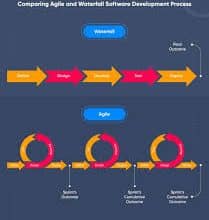You may be asking what step to take first if you want to establish a small farming business. You may not even own land yet, yet you are already thinking about and planning your next move. Don’t worry, we’ve got you covered. This guide is here to tell you all you need to know about a small farming business, how to start one, and some profitable small farming business ideas you can utilize.
How to Start a Small Farming Business
Farmers now have additional opportunities to construct profitable businesses because to technological innovation. Small farms (making less than $50,000 per year or occupying less than 180 acres) are now seen as potentially profitable rural and urban economic options.
So trust me when I say that beginning a small farming business is a smart idea. To begin, you must complete the following steps:
#1. Learn About Farming
You can’t go wrong with this first step. If you’re new to farming, learn as much as you can in the time you have. But be moderate as well. You can’t possibly know everything. Some learning will have to be done on the job, and trial and error are messy, time-consuming, and occasionally costly. However, it is unavoidable in farming, so accept the process. But also learn some. Balance.
It can be highly beneficial to find a mentor – someone you can directly learn from, perhaps in your current community or where you hope to farm. Work on a farm if you haven’t already. Then offer to help. Before you begin, gain some experience.
#2. Design and Plan Your Farm
Determining what your farm company will be is a vital first step. Do you wish to start a small vegetable farm? Do you intend to grow hay for other farmers? Perhaps you’d like to start a small-scale farm that raises a range of animals and vegetables. You may be wondering how to start an ecotourism farm, where visitors will come to stay and watch how your farm works and possibly even engage in agricultural tasks.
#3. Find a Farm Site
This is a crucial phase, so be proactive and begin asking the correct questions as soon as you begin seriously considering purchasing a farm. Zoning, with restrictions that vary depending on the local government, can be difficult.
#4. Write a Business Plan
You might be wondering if you need a business plan. The quick answer is that you will need a business plan if you want to start a firm. You will evaluate markets, supply, and demand, as well as anything and everything related to your farm operations, management structure, financial analyses, products, and price points when drafting the business plan. Because designing and planning are interconnected, you can go back and forth between them. However, a business plan is an important enough component of launching a firm to warrant its own stage. It’s where you can brainstorm and make your aspirations a reality.
#5. Find Grants and Loans
You may not have all of the funds required to begin farming on the size you desire. You can start small, dip your toe in the water, and see how you like farming on a tiny scale, investing whatever you can scrounge from your monthly household budget. However, getting anywhere with this strategy may take a long time because you may not be able to invest a big sum, enough to bring the product to market. Grants and loans for young and beginning farmers are available! Established farmers can also get assistance. Programs provide subsidized equipment such as high tunnels, as well as support in being certified organic.
#6. Get Business Licenses and Permits
When it comes to the requirements for starting a small farm business, your local and state regulations may differ. However, the fundamentals remain the same: you will almost certainly need to register your business name, obtain a business license, obtain an employer identification number, and carry product liability insurance.
#7. Set Up Finances
You must also decide on your business structure. Will this be a sole proprietorship, a limited liability company, or something else? To obtain information unique to your circumstance, contact an accountant. Your business plan should include financial planning. It is critical to have a bookkeeping and accounting system from the beginning of your small farm business.
#8. Grow Your Business
Don’t be concerned about making mistakes at first; it takes time to become acquainted with all of the farming procedures, determine how to sell to the correct clientele, and establish your rhythm. Give yourself a few months to become an expert in farming.
Profitable Farming Ideas for Small Businesses
Here are the top most profitable small farm ideas to consider in 2023:
Rural Agriculture Profitable Small Business Farming Ideas
Rural farms are found in rural sections of the country. The enormous geographical area is ideal for growing food crops, raising cattle, and hunting; yet, farming activities are heavily reliant on the seasons and natural weather conditions.
#1. Tree Nursery
When done correctly, a tree nursery may be a terrific investment. Most growers begin with 10 to 20 seedlings on a tiny acre, and with the correct marketing approach, the infant trees are sold out before they develop. Spend some time learning how to source the trees you want to cultivate organically.
#2. Fish Farming
Fish farming is an excellent business concept for investors with sufficient land, and it does not always necessitate the presence of a body of water. You can establish a fish farm by building ponds or purchasing fish tanks; it’s a very scalable business idea. You will be able to choose the sort of fish to raise if you have sufficient knowledge of fish raising.
#3. Dual Crop Farming
Dual cropping, often known as multiple cropping, can be mixed cropping or intercropping. Mixed cropping is the cultivation of two or more types of crops in the same area, whereas intercropping is the cultivation of different crops in close proximity. Dual-crop farming is popular among farmers because it makes better use of machinery, soil, water, and farming supplies.
#4. Dairy Farming
According to the United States Department of Agriculture, industrial farms supply more than 80% of the milk sold in the market. However, the number of permitted dairy farms continues to diminish, creating chances for new entrepreneurs with vacant land in rural areas.
Low Capital Profitable Small Business Farming Ideas
If you don’t have a lot of money, there are several low-cost company ideas that are simple to start. While these farm enterprises often earn less than farms that invest in land and equipment, they continue to deliver a consistent stream of income since the market exists. These low-capital small business farming ideas include:
#1. Herb Gardening
People are becoming more aware of what they put in their food and appreciate how these plants contribute to a more enjoyable dining experience. When developing your own herb garden, prioritize variety and select popular varieties that are easy to market.
#2. Bee Farming
Apiculture or beekeeping is frequently started as a hobby, and the initial investment is little. You can sell bee byproducts like beeswax, pollen, royal jelly, and, of course, honey, which is quite popular with customers. Bee pollen and royal jelly are considered superfoods and are expensive.
#3. Aquaponics
Aquaponic farming combines aquaculture (raising aquatic animals) and hydroponics (growing plants in water). This means that farmers may grow crops with less water and land. It has a reduced initial cost and better profit potential because it produces crops faster and in greater quantities.
Urban Agriculture Profitable Small Business Farming Ideas
Urban agriculture is a type of farming that takes place in densely populated regions such as cities. This primarily relates to growing, processing, and distributing food, although it can also refer to small-scale livestock and fishing. Space and pollution are the key obstacles for urban farmers, but they are also motivating them to develop innovative agricultural practices with the help of technology.
Let’s look at some of these urban agricultural profitable small business farming ideas:
#1. Vegetable Landscaping
Starting a landscaping business can be costly, but farmers who want to go green can explore the realm of edible landscaping. This strategy generates more flexible prospects, requiring significantly less beginning capital. You’ll largely be spending in gear for growing veggies in containers or on newly tilled soil.
#2. Rooftop Tea Garden
It is crucial in cities to maximize space, which includes being able to balance air quality by generating more room to plant greens. While rooftop gardens are already widespread in metropolitan areas, there are a variety of other ideas you might explore and convert into a business. Starting your own rooftop tea garden is one of them. You can produce a variety of aromatic and therapeutic herbs and greens to sell to customers directly.
B2B Profitable Small Business Farming Ideas
B2B farming is a business model in which farmers produce agricultural goods for business clientele. Businesses desire to interact directly with farmers for lower costs and higher quality by obtaining items straight from the source. Some of these B2B small business farming ideas include:
#1. Snail Farming
Heliciculture, or snail farming, may be a very profitable enterprise. Most large snails are edible and can be sold for a high price, but particular varieties are favored over others; this primarily depends on where you live, so it’s vital to grasp the basics.
#2. Organic Farming
Organic farming is a method of cultivating crops and livestock in general, but thanks to a growing market of health-conscious consumers, this practice has formed its own niche. Nowadays, you may find restaurants and supermarkets that specialize in organic produce.
#3. Poultry Farming
You can supply poultry goods to other firms by raising chickens. Because there is always a market for chicken products, it remains an appealing financial option for prospective farm owners. The disadvantage is that poultry farming is strictly controlled to guarantee the safety and health of the community’s citizens.
What Is Business Farming?
A taxpayer is in the agricultural industry if he cultivates, operates, or manages a farm for profit or gain, whether as owner or renter.
What Is the Most Profitable Farming Business?
One of the most profitable agriculture business ideas is dairy farming. It produces manure in addition to milk. Organic dairy products such as milk, cheese, curd, cream, and so much more are in high demand all year.
What Kind of Farming Business Can I Start?
You can start a variety of farming businesses, some of which are as follows:
- Tree Nursery.
- Fish Farming.
- Dual Crop Farming.
- Dairy Farming
- Herb Gardening.
- Bee Farming.
- Aquaponics
- Microgreens Farming.
What Is the Difference Between Hobby Farm and Business Farm?
To clarify, a hobby farm is a smallholding or small farm whose upkeep is not intended to be a primary source of income. A commercial farm is a style of farming in which both crops and cattle are grown only for commercial purposes. It is a large-scale modernized agricultural method.
What Qualifies as a Farm to the IRS?
If you cultivate, operate, or manage a farm for profit, whether as owner or renter, you are in the agricultural business. Livestock, dairy, poultry, fish, fruit, and truck farms are all examples of farms. Plantations, ranches, ranges, and orchards are also included.
How Many Acres Is Considered a Hobby Farm?
A hobby farm is both for many people. Most are 10 acres or fewer in size; this is modest enough to provide a more reasonable approach to learning how to cultivate your own sustainable food while also being large enough to potentially create cash.
What Is the IRS Hobby Income Limit?
If you have at least $4,000 in hobby income, you can deduct $3,040 in hobby costs as an itemized deduction.
What Can You Write Off on Taxes for Hobby Farms?
Many expenses are deductible, including:
- Farm supplies like feed, fertilizer, seed, and poultry.
- Labor hired to help out with farm tasks.
- Compensation to your children or spouse if they work the farm.
- Repairs and maintenance on your property.
- Interest from a farm mortgage.
Conclusion
Agriculture is an important industry in the United States since the country is recognized as one of the world’s top producers, consumers, and exporters of agricultural products. With the world’s population anticipated to reach 9.7 billion by 2050, there will undoubtedly be greater demand for farmers in the future. If you’re thinking about starting a farm, this collection of farming business ideas might help you get started.
- POULTRY BUSINESS: Beginners’ Guide to Launch a Lucrative Poultry Business
- SMALL SCALE BUSINESS IDEAS 2023: (50+ideas +Business plans)
- POULTRY FARMING BUSINESS: Baby-steps to Setup a Cost-effective Business in Nigeria
- 101 Best Business Ideas in 2023 (Budget Plan Included)
- 2023 Agriculture Loan List, Updated!!!(13 + Application guide)
- WHAT IS CHURN RATE: Definition, Examples and How to Calculate It
- T Mobile Business Plans: Small Business Phone Plans & Wireless Solutions
- CLOVER VS SQUARE: Price, Features & Which Is Right for Your Small Business






